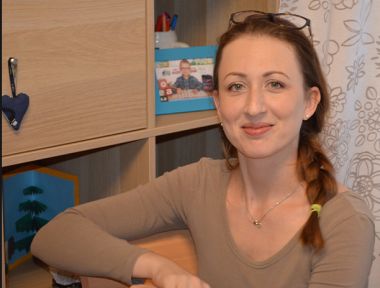Mahak’s experience in medical school serves as a testament to both her incredibly strong character and the negative effects of such demanding training. She has taken on the challenge of burnout straight away as a committed medical student. Her experiences provide a remarkable glimpse into the difficulties and pains that come from dealing with this syndrome, particularly in a setting with high stakes like medical education. Anyone undertaking hard training or facing similar challenges in their own endeavours can learn a lot from Mahak’s experience. Join us as Mahak shares her own personal encounters with burnout, providing insightful advice for anybody travelling the challenging route of medical study or dealing with similar pressures in any field.
Would you please begin by briefly outlining your history and the factors that motivated you to seek a career in medicine?
I’ve always wanted to learn about the human body, but I was not certain if I wanted to become a doctor. That changed when I got a job as a laboratory technician in a research institute in Spain. I wanted a profession where I could make a difference in people’s lives, so my passion and my job inspired me to become a doctor.
In your academic or professional career, when did you first detect symptoms of burnout? What were some of the early warning signs for you?
At the beginning, I started experiencing signs of stress during my first semester exams. I felt alone, tired, not motivated and overwhelmed. I even questioned if I had chosen the right career path. What made it worse was feeling emotionally exhausted and doubting myself after long study sessions, still not feeling prepared, and worrying about failing my exams and getting kicked out of school. Exam times were really tough for me.
How did burnout affect your physical and mental health? What were some of the main difficulties you encountered?
I was really stressed because I was trying to do too much all at once. I often couldn’t spend time with friends or see my family because I felt guilty about not studying enough and falling behind. This stress took a toll on my personal and social life. I also experienced physical changes like changes in appetite, gaining weight, losing hair, and more. Along with the physical changes, I felt mental stress, anxiety, and depression.
One key thing that helped me was planning my week. I made sure to include time for rest, study sessions, meal preparation, workouts, and also spent time talking to friends and family to avoid feeling lonely. This balanced approach made a big difference for me.
Do you think there were any particular events or circumstances that led to the onset of burnout in your case?
Yes, there were times when I felt like I couldn’t do it, and I felt very down and defeated. If I had to pick one moment, it would be when I failed an anatomy exam even though I had been studying day and night for it. It left me feeling scared and thinking that maybe I wasn’t cut out for this. In moments like that, when you’ve put in so much effort and still come up short by just a couple of points, you feel really helpless and defeated.
How did you recognise your burnout and deal with it? Were there any specific methods or tools that you found particularly useful?
In my first year of medical school, I realized that things were tough, but I didn’t take any action because I thought the stress was just part of the journey. However, as time went on, I started experiencing significant changes in my mental and physical health, which affected my personality. That’s when I realized I needed to find ways to cope with the stress of medical school. I began to change my approach. I started focusing on my health, like eating regular meals, something I hadn’t done in the first year. One key thing that helped me was planning my week. I made sure to include time for rest, study sessions, meal preparation, workouts, and also spent time talking to friends and family to avoid feeling lonely. This balanced approach made a big difference for me.
Is there anything you wish you had known or done differently to avoid or manage burnout better in hindsight?
I wish I understood earlier that taking care of our body is really important. I used to ignore eating regularly and often had unhealthy food or skipped meals. I didn’t realize that making healthy meals and exercising is just as important as studying because if I don’t have the energy to concentrate and study, I won’t get good results. I completely ignored my phsyical health which was affecting my mental health too. Looking back, I wish I had taken care of myself from the beginning.
I didn’t realize that making healthy meals and exercising is just as important as studying because if I don’t have the energy to concentrate and study, I won’t get good results.
Would you mind sharing any tips or coping methods you find to be very useful on your path to recovery and resilience?
As time went on, I learned what helped me perform better. My top advice is to plan ahead. Schedule your week, give time to yourself, without feeling guilty about not studying all the time. Avoid procrastination to prevent feeling overwhelmed during exams. So, here are my three most important tips:
- Take care of your mental and physical health (positive thoughts and good food).
- Avoid procrastination.
- Plan your week and stick to your plan.
The cover image was generated by Bing using DALL-E 3 technology.


 4 min.
4 min. 


